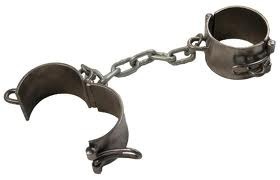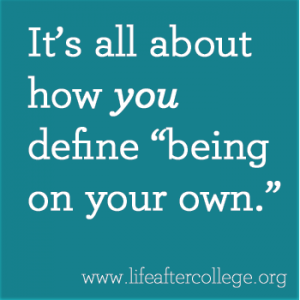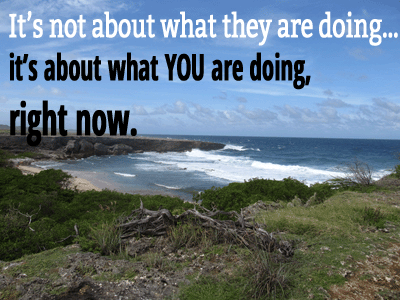Melissa Anzman's Blog, page 3
July 22, 2013
Doing a Favor or Being Taken Advantage Of?
 When you are first starting out – whether it’s in a new job or with your own company, one of the best ways to make a lasting impact is to help others out. Being the “yes” man, pitching in, being a team player, leveraging your skills to help someone else out. In other words, working for free and doing favors.
When you are first starting out – whether it’s in a new job or with your own company, one of the best ways to make a lasting impact is to help others out. Being the “yes” man, pitching in, being a team player, leveraging your skills to help someone else out. In other words, working for free and doing favors.
This approach is great to build a positive reputation, share your skillset with others, and start making new connections and building relationships. But doing favors forever usually leads to feeling like you’re being taken advantage of… which leads to anger and resentment.
Favors to Income
For years, I was helping people out in one way or another. When I was in my corporate job I was constantly updating my friend’s resumes, connecting them with leads for new jobs, giving them interview tips, and so on. In other positions I was promoting authors “off the clock” with some key personal connections to help further their publicity and marketing campaigns that the publisher didn’t have the budget for. I liked the people I was helping out, I enjoyed sharing my knowledge.
However, all of these favors led to me being extremely busy… with no income to show for it. I was frustrated, annoyed and a bit bitter. I was chatting with one of my mentors, and she practically shook me across the table saying, “Stop doing everything for free – ask to get paid for your skills!”
Oh, right. People in the corporate world or entrepreneur realm aren’t going to pay you for what you are fashioning as favors. Helping out established your skills, but you have to take it to the next level to earn income from those skills.
Take a deep breath, and realize that your skills are worth money.
It’s a hard thing to convince yourself of because most likely, your skills are second nature to you. But they aren’t for everyone – so realize the value that you bring to the table. For example, I was in a communications role when there was a need for HR support. So I stepped in as a favor to help out the group… and when it was apparent that I was able to handle it, it was time to up the ante and discuss the additional income required for me to continue to do the role.
For the record, proving you can do the role prior to asking for a promotion or more money almost always has a more positive outcome than demanding it prior to action.
As a solopreneur, there is a clear line of when helping out turns into losing money. For me, I was helping a lot of people with their websites. Full site builds, WordPress updates, site breaks, and so on… as a favor, for months. My accountability group set some hard lines for me – either I had to start asking for money for these things, or I had to stop doing it.
You have to ask.
This is the hardest step for me – perhaps it is for you as well, otherwise you would already be getting paid! That being said, you have to request income for services rendered. Before you have the conversation with potential clients, set a payment structure for yourself. Write it down (trust me – you’ll forget what you’ve quoted otherwise, and that’s rather embarrassing), and then increase the amount a little.
Increase what? Yep – you are probably underselling yourself, as you’ve gone from free to fee, so you don’t feel as though you are worthy of earning what it’s worth. Throw that concept away – research what others are getting paid for similar services and make sure that you aren’t selling yourself short.
Commit that you will make “the ask” during your next request. The worst they can say is, “Oh, well I don’t have the budget for that right now, maybe next time.” Which is a win-win for you. You have officially set boundaries and your time is free to take on paying projects. Hustle yo!
Taken Advantage Of?
As blunt as I typically am, I shy away from the “you are taking advantage of me” conversation. It’s scary – I don’t want to offend the other person, I don’t want to come across as demanding or greedy, so I usually let it go until it’s past the point of return. You know, I’m totally consumed with bitterness towards that person until I can no longer even stand their emails. Don’t let it go that far.
Typically you know when you are being taken advantage of. When you start thinking:
This isn’t worth my time
I’m not getting anything out of this “deal”/relationship
They are asking for way more than what we agreed to
I’m not being paid enough for this sh*t!
I don’t ever want to take on this type of project/client again
Listen to those warning bells the first time they go off and evaluate where you are with the situation. Do you feel taken advantage of because what you are doing feels shackley? Have you grown into a new income level with your experience? Are the things you’re being asked to do well outside of what you agreed upon?
Once you know why you feel that way, it’s time to confront the situation. No, you don’t have to be confrontational, but you do have to have the conversation. I like to script out some highlights or bullets so I don’t totally panic or freeze in the moment, usually focusing on the reasons my warning bells were going off, and then schedule a call.
It’s not going to be easy, but it will feel much better after the fact. Be clear about the desired income you want from the discussion – more money, a new arrangement, ending the project, more communication, and so on.
Sample Conversation
Start with something like:
“Thank you for taking the call. As we’re approaching XX (days/weeks/months) working together on YY project, I’d like to talk with you about next steps as we move forward.”
Then insert the ideal resolution:
Terminating the project: “I’m so pleased with the progress that we’ve made so far, but now I think it’s time to hand it over to (someone with more time, expertise, availability, etc).”
Asking for more money: “Now that I have a better idea of the scope of your needs, we need to reevaluate the fee schedule. My rates for this project going forward are…”
New arrangement: “I’m so glad that we’ve been able to get this project rolling. As we’re currently on retainer, I’d like to discuss moving onto an hourly fee since the bulk of the work is complete and it would be more beneficial for you from a financial perspective.”
From there, you will have a better sense of where the project is going and if it’s something you want to be a part of long-term. If the person reacts badly, it’s a clear red flag that it’s time to stop pitching in and start moving in! No exceptions my friend.
Love what you're reading - want more? Sign-up to work with me one-on-one, and I'll help you get unstuck and fall in love with your job.

July 18, 2013
Book Review: 101 Secrets for Your Twenties by Paul Angone
 Paul Angone’s first book, 101 Secrets for Your Twenties was released on July 1st. Now I must warn you – Paul is my partner in crime over at Life After College, so I was a bit unsure if I could write an unbiased review of his book… until I read the book! While my 20′s are sadly in my rear-view mirror, I found the book funny, engaging, still relevant, and a super-quick read.
Paul Angone’s first book, 101 Secrets for Your Twenties was released on July 1st. Now I must warn you – Paul is my partner in crime over at Life After College, so I was a bit unsure if I could write an unbiased review of his book… until I read the book! While my 20′s are sadly in my rear-view mirror, I found the book funny, engaging, still relevant, and a super-quick read.
Based on Paul’s viral post – 21 Secrets for Your 20′s, the book expands on advice that everyone in their 20′s should know before venturing out “into the real world.” It is chock-full of advice that brings the isolation and sometimes desolation of your 20′s into perspective with the realization that you are NOT alone.
Each chapter I thought… “ooh, that’s my favorite one” and “oh, how true!” There was one chapter that spoke to me – not as a 20 something, but as a good reminder of life. Chapter 33:
“Just because you grow up doesn’t mean you grow out of your insecurities. Sometimes, if you’re not careful, you grow into them. Insecurities are like Swamp Things. Just when you think you’ve escaped, they rise up for a surprise attack.”
When I read that, I wished I had heard this advice when I was in my 20′s. I had been so focused on my own insecurities, that they did grow and ended up crippling me into analysis paralysis. Can you imagine all of the amazing things I *probably* missed out on because I never heard #33? Thankfully, that doesn’t have to be the case for the 20-somethings of the future, thanks to this book.
Each chapter brings it’s own guidance and examples through humor and real life stories from Paul’s life. Paul hangs all of his dirty laundry out there to help all of us feel as though we are connected through shared experiences, thoughts, and reflections, so we don’t have to be there alone. And alone, you aren’t.
The most striking thing for me, was that Paul and I had completely opposite experiences during our 20′s – he was married and had kids, and was unemployed during his 20′s; I was single, climbing up the ladder, and constantly on the move. How could this book possibly relate to my life? How could his experiences which were so vastly different than my own, correlate through advice?
The crazy thing is – it DID. In a big way. While we experienced our 20′s differently externally, Paul tapped into the internal struggles people in their 20′s share – who knew that was even possible?
I know, I know… is it worth the read? YES – it most definitely is worth it (and that’s from a skeptic!). Regardless of your age, there are so many rich nuggets of life advice shared, making it a great read for just about anyone who’s looking for great anecdotal advice, life lessons, and how to make life more fun in your 20′s.
Buy your copy here: 101 Secrets for Your Twenties
Interested in winning a copy? Leave a comment below, share this review, or send me a note!
Love what you're reading - want more? Sign-up to work with me one-on-one, and I'll help you get unstuck and fall in love with your job.

July 16, 2013
Side Hustles, Solopreneurship, and Starting Out: New on LAC
 Long before I ended up quitting my corporate job, I had dreams of venturing out on my own. I looked everywhere for advice of how to make it happen.
Long before I ended up quitting my corporate job, I had dreams of venturing out on my own. I looked everywhere for advice of how to make it happen.
When I was planning my (second) exit out of the corporate world to become a solopreneur, I had dreams of grandeur. Thoughts of what being an entrepreneur meant. What my daily life would consist of. All of the money that would be rolling in the door and the clients I’d be helping.
I sucked at balancing the side hustle thing. I’m an “all-in” or “all-out” kind of gal, so sticking it out to do my corporate job and my passion project at the same time, wasn’t ideal. I was ready to launch – and be a solopreneur.
After a lot of thought and debate, I settled on what my company would be and who I would be serving. Put my shingle out on the web, and sat back waiting for one narrow niche demographic to find me. My first mission statement was, “I work with working professionals age 25–45 who are looking to redefine their career path.”
In my mind, being a solopreneur meant that I could only do one thing – I had to be known for one thing, or I would never earn a living or have paying clients. The people around me, the bloggers and online business owners I followed, the coaches and writers, and everyone in between… seemed to have just one business. One income stream. One “passion.” And as restrictive as that felt to me, I figured they knew much more that I did.
Continue reading on Life After College…
Love what you're reading - want more? Sign-up to work with me one-on-one, and I'll help you get unstuck and fall in love with your job.

July 11, 2013
Practical Tactical Thursday – I Don’t Have a College Degree
 Now, more than ever, “professional” job descriptions include a specific level of education required (four-year college degree), with additional education preferred (master’s degree). Going to college has become the traditional route for most high school graduates – it’s just what comes next.
Now, more than ever, “professional” job descriptions include a specific level of education required (four-year college degree), with additional education preferred (master’s degree). Going to college has become the traditional route for most high school graduates – it’s just what comes next.
I won’t debate the merits of a college degree as a requirement (although I do have a ton to say about this), but this trendy requirement has left many qualified working professionals without a degree, in a lurch.
What are you supposed to do if you don’t have a college degree? How do you get a new job?
First, let’s talk about what a college degree is supposed to show to a recruiter – knowledge, skills, determination, and a thirst for learning. Without a degree, you have to show these same skills and knowledge, in another way!
If you have been working for more than 10 years, there is no doubt that you possess all of these attributes… and they are probably more applicable than what was learned during your college years.
Show me baby!
Knowledge: Think about areas in which you are a subject matter expert. What do you know like the back of your hand? What class could you teach in school? Take this expertise and incorporate it into your resume and cover letter. You want it to shout, “I know so much about this!”
Skills: On-the-job skills well outweigh classroom learning – and that’s not just me talking, that’s every study about adult learning. But it’s your job to remind the recruiter about this. And it needs to be extremely obvious to get their attention. What skills do you have? What unique skills can you deliver, that can’t be learned in a classroom? What skills are in high demand for the position you are seeking? Show them, repetitively, throughout your resume materials.
Determination: For most, attending college isn’t a walk in the park. It takes time, money, and a commitment to push everything else aside to graduate. What projects have you worked on that took relentless determination? How have you “stuck-in there” with something? Have you been loyal to a company – turn that around to show a willingness to “stick.”
Thirst for Learning: This is probably the most important attribute to show, but it doesn’t have to apply only to college-level work. In your professional life, what courses, trainings, volunteering, or other things have you done to improve yourself? Be sure to add these details in a section in your resume titled Training or Personal Development since you won’t necessarily have an Education section. Only include things that are career-related and make an impact.
Tactical Application
Ok, so you haven’t officially graduated from a college… so what do you include? Here are a few rules:
Unless you are actively enrolled in college and taking courses, if you have not completed your degree, there is no use adding it to your resume. I know, you want to show that you took some hours or got this close to graduating, but showing that you attended and didn’t finish you degree isn’t helping your cause. Leave it off, altogether. If you are actively enrolled, add your education information as you normally would, with an expected graduation date.
Don’t list the courses that you took in college, unless you received a certificate or degree from it. College courses aren’t all that awesome to begin with, so unless they are highly specific and rare, they are wasting space.
When completing an online application, follow the directions. Most application software will ask you for the highest completed level of education. Aka – where did you last graduate from? Most likely, the answer will be high school, so add that in. If it asks you last school attended, answer that honestly as well – if you did attend college for a few courses, enter that information.
Two Especially Critical Elements without a College Degree
When you aren’t able to say “graduated from” on your resume, two other application actions become critical – your cover letter and follow-up. Both are essential (and required) for general applications, but you are (unfortunately) going to have to work harder to get past the gate keeper.
In you cover letter, you have to explicitly show the above mentioned qualities and add in a little bit more background about why you are an awesome candidate. More than others, you have to convince the recruiter that you are worth taking a chance on because your skills outweigh any type of college degree.
You most likely won’t get past the application tracking system robot. Especially if a degree is a requirement. So if you want the job, you are going to have to ask for it! Research who the hiring manager is through this technique, and then follow-up! Get their attention and remind them why you are qualified for the position – degree aside.
The Cold Hard Truth
This part hurts my feelings to say, as much as it probably hurts yours to hear… but sometimes not having a degree is going to limit your options. It’s not right, but it’s still there. People are biased – thinking that a degree sets people apart, categorizes people into “like me” categories, and holds some cache.
If this happens, more likely than not, it has nothing to do with you personally. It may feel like a personal slight, but really it’s just a bias that would be applied across several people. And if makes you feel any better, there are companies that will only recognize degrees from certain universities, snubbed the rest of those with degrees as well.
Final thought… would you want to work for a company that has an elitist attitude anyway?
Love what you're reading - want more? Sign-up to work with me one-on-one, and I'll help you get unstuck and fall in love with your job.

July 1, 2013
The Comparison Bug
 I’m getting ready to head out to check off another “life to-do” off my list – attending the World Domination Summit and visiting Portland. (If you’re going to be there – please let me know so we can meet up!). While I am excited about what’s ahead, I can’t help but be extremely nervous.
I’m getting ready to head out to check off another “life to-do” off my list – attending the World Domination Summit and visiting Portland. (If you’re going to be there – please let me know so we can meet up!). While I am excited about what’s ahead, I can’t help but be extremely nervous.
You see, the people who are going to be there are my peers and people I aspire to be. In other words, there is going to be a whole lot of awesome in the room. All I can think about is… how do I compare? I’m not as successful as this attendee, I don’t have as much traffic as that speaker, I haven’t “gone viral” like that person, and so on.
It’s easy to get caught up in the comparison bug when you work for yourself.
You start-out trying to overcome skepticism from all angles and then are bombarded by messages from “experts” who want to tell you exactly how they got as big as they did. You hear about overnight success stories and people living off of the income from their blog, and it gives you hope… but also makes you feel inadequate.
If they are making so much money…
If they can sign-up that many clients…
If they can write a post that goes viral…
If they have over a million hits a month…
WHY CAN’T I?
Ironically, my business is doing better than it ever has – I’m growing, I’m sustainable, I’m paying the bills, and I’m working with awesome people. But I can’t help myself from comparing my current state of business with the people I’m going to be meeting this week. And it freaks me the heck out.
In the corporate world, comparison felt different. Other people’s success was motivation for me to keep moving forward. It just felt like I had a path – and the comparisons helped push me onto the “right” one. My success was more linear. More visible. More within my own control.
I never felt inferior to my peers or my mentors. My success was based on what I was “told” to do. What the business needed. What was best for the company. What was asked of me.
For the first time, I’m stepping out among my peers (and people I aspire to be like someday), wearing the badge of what I, alone, am responsible for. Honestly, I’ve shied away from going to these types of events because I didn’t know if I belonged in the same space as the other attendees.
And now… while I’m still freaking out about comparisons and success measures, I have people there! I have friends that I can’t wait to see when I’m there. I received tweets from people I am “obsessed” with who *know who I am!?!?!* and want to meet up. And I am excited to meet other people at various stages of their own journey who I would have never have known otherwise.
In other words, I’m treating this like a corporate business trip. (Attendees would probably gasp if they read this). I’m putting on my employee hat, and not concentrating so much on being the owner this week. I am going with specific goals for myself, I am going to act in the best interest of the company (even though it happens to be my company), and I am going to be confident that I belong.
We can’t constantly compare our successes or failures with someone else’s measuring stick. It’s never calibrated equally.
The person who is making so much money? She has been at it for over 10 years on her own. She has worked incredibly hard for nine times longer than I have, to get to that income bracket.
The person who has a ton of clients and a constant referral machine, doesn’t convert as high of a percentage of people that they could, especially repeat customers.
The person who wrote a viral post, had some help with it “going viral”… and didn’t capture any more of an audience or client conversions, than before the post went everywhere.
And so on…
It’s not about what they are doing… it’s about what you are doing, right now.
Love what you're reading - want more? Sign-up to work with me one-on-one, and I'll help you get unstuck and fall in love with your job.

June 27, 2013
How to Interview with Recruiters: On LAC
You finally get the call (or email), for a position that you are super excited about, requesting your availability to chat with the recruiter and your foot is officially in the door. You are so excited to make a lasting impression now that you finally have the chance… everything is ready to go.
But following the phone interview, you aren’t asked back – and you have no idea why.
The Biggest Mistakes You Are Making During Phone Interviews
Your Approach.
Your excitement about landing an interview tends to lead to overshare during your first interview. The most important thing to remember when you are speaking to a recruiter is this: they are not the subject matter experts for the position you are applying for, the hiring manager is.
Stop getting in the weeds with details, acronyms, and your awesomeness when speaking to a recruiter. They typically are going to glaze over – they don’t have to know those types of details, and they aren’t usually looking for that type of information either.
Instead, approach your interview as you would speaking to a friend or relative about your experience. You want to impress them with your knowledge, but you want to make it “kid-friendly.” When we are attuned to expectations of our role, it’s easy to forget that not everyone knows what the heck we are talking about. The same can be said about most recruiters.
They will have anywhere from 20 – 50 (or more!) positions they are recruiting for at any given time. So their complete comprehension of everything that you do at the granular level, isn’t critical.
Instead, focus on the big accomplishments that you have delivered – think 30,000 foot view of your experience and performance, not the nitty-gritty details. Recruiters are looking to see if you meet the qualifications posted and if you would be a great culture fit – not the exact ways in which you’ve done your job in the past.
Think big picture about your skills and how to become their friend. The rest of the details should be saved until you’re speaking with the hiring manager.
Being Condescending.
Head on over to Life After College to read more.
Continue Reading on Life After College…
Love what you're reading - want more? Sign-up to work with me one-on-one, and I'll help you get unstuck and fall in love with your job.

June 24, 2013
Stop Making these LinkedIn Errors

There is no question that being on LinkedIn is the best social media outlet when you are searching for a job. While having an active and up-to-date profile is a must, if you are making the mistakes below, you may be doing more harm than good. (To recap the basics you need, go here).
Stop Making these Errors on Your Profile
Error 1: Calling yourself a consultant when you’re really just unemployed.
It’s obvious when you have a consulting company name and then… no link to a website or other type of landing-page to talk about what you are actually doing as a consultant. Not to mention that this use of “consultant” harms the people out there who are making a living consulting.
If you are unemployed, your profile should gently reflect that – not show a made-up/fake “company” to bridge your time while you are seeking a new position. You can claim being a consultant, if you are making income from your business, on a consistent basis. At the very least, you need to have a place for recruiters to go when they look up your business – so make it official, or leave it off altogether.
Error 2: Listing awards that have no meaning outside of the company.
I should have been keeping track of all of the hilarious awards I’ve seen across various LinkedIn profiles – the names can be entertaining. If the person viewing your profile has no idea what your award means, it adds zero value – in fact, all it may be good for is a nice laugh.
The awards section is a great place to show your performance and the ways you’ve been honored, but be very clear about what you have been awarded for. No one *really* cares if you had perfect attendance, but they will be very interested if you were the top performer. In other words, not every award is created equal.
Evaluate your awards and see if it is crystal clear to a third party bystander, what the award actually means. If you have to alter the name to be more descriptive – then do that (just be sure to a. not lie, and b. place the company’s name for the award in the description section). Be very clear and specific how awesome the award is – so anyone can easily see and judge your achievement levels.
Error 3: Not updating your headline.
LinkedIn keeps updating their design which is incredibly annoying, but one of the biggest changes as of late, is the information you are able to view while hovering over someone’s name. You used to be able to see their headline and current position. Not so much anymore. You get a snippet of the headline only.
As someone who is constantly on LinkedIn, this is incredibly frustrating – especially when you are trying to place a person or see if someone would be a good fit for a role. So hover over your own name – is the viewable information descriptive enough to tell a potential recruiter/employer what you’re about? Are you enticing them to read more and actually clicking on your profile?
Error 4: Sending an email to your entire contact list.
I know, this isn’t something on your profile per se, but if you are hoarding connections (stop that!), you risk offending someone on your contact list. I have been invited to completely irrelevant events, asked to participate in random surveys, and been “sold” to about products that are so outside my scope of work. In other words, those contacts totally missed the mark – and lost me as a connection.
LinkedIn is great for getting/having direct contact information for your connections, but don’t abuse that power/information by treating all connections the same. If you do need to reach out to your contacts, I’d recommend doing it outside of the LinkedIn messaging platform and send them individually… or at least to applicable audiences.
Love what you're reading - want more? Sign-up to work with me one-on-one, and I'll help you get unstuck and fall in love with your job.

June 17, 2013
Opening Energy
 My adventure here in the Colorado Rocky Mountains reached a new high (haha – pun intended), this past weekend. I got to witness my sleepy village, we can’t actually call it a town, open for the summer season. It was so exciting to see people walking around, restaurants open, activities to do outside my door, that I was literally nerding out with glee.
My adventure here in the Colorado Rocky Mountains reached a new high (haha – pun intended), this past weekend. I got to witness my sleepy village, we can’t actually call it a town, open for the summer season. It was so exciting to see people walking around, restaurants open, activities to do outside my door, that I was literally nerding out with glee.
I have been here almost two months, during which I had to go to the town 15 minutes away to grab a bite to eat and to get coffee in the morning. This city girl was probably the happiest person for a 10 mile radius.
But my excitement and energy wasn’t matched by the people getting back to work. You’d think that after having a two-month break that they’d be thrilled to earn money, be in a beautiful place to work, and enjoy the excitement and energy around them. That’s what I thought – and I was so very wrong.
People were annoyed to be working again. Eyes were rolling at alarming rates. Inefficiency was at an all-time high; service was marginal at best; and there were only a few hellos throughout the day.
And all I could keep thinking is, “If I were your boss, we’d be having some words.” Not because I’d want to fire them or because they were bad workers. But they weren’t starting off with a bang. Their energy was low. They weren’t giving the appearance of going above and beyond. They weren’t making their new customers feel welcome, converting repeat customers. As a team, they weren’t gelling yet.
Starting – BIG
When you start a new job, things aren’t going to be perfect – far from it, if we’re being honest. You are probably going to want to roll your eyes at the way your boss talks to you, or the way certain things are done, or perhaps the people you have to interact with. But the first impression you give, will make a big difference.
This weekend, I probably interacted with more human beings than the previous three months combined. I wanted to do everything. I *may* have been up a mountain, jumped on a bungee-cord trampoline, went to a river, shopped for some goodies, ate a few restaurants. In other words, the village had a lot of opportunities to “impress” me.
And they failed. My guests were nonplussed most of the time with the service, and even crossed an old favorite restaurant off their list with a “we’ll never be back.” The food was the fine, but the service was atrocious.
Opening energy doesn’t just come with the start of new role. It comes with the start of a new month, a new week, and a new day. Before you walk into work in the morning, check your energy – are you present, are you giving your best-self forward, are you “impressing” your clients, so they want to come back?
Love what you're reading - want more? Sign-up to work with me one-on-one, and I'll help you get unstuck and fall in love with your job.

June 13, 2013
Practical Tactical Thursday – Head Hunters
 Posting your resume on various websites such as Monster, CareerBuilder, Indeed, and LinkedIn allows your information to be available for recruiters to find it. Back in the day when “head hunters” were used often in retained job searches, having your resume readily available helped expand your reach and also let recruiters find you.
Posting your resume on various websites such as Monster, CareerBuilder, Indeed, and LinkedIn allows your information to be available for recruiters to find it. Back in the day when “head hunters” were used often in retained job searches, having your resume readily available helped expand your reach and also let recruiters find you.
These days, things have changed a bit.
Head hunters are essentially recruiters through an agency. They tend to recruit for positions at various different companies and are paid only when they place an employee in a position (their pay is usually a percentage of the person’s new salary, or a pre-set fee).
With the economy being the way it is and the pool of qualified talent being bigger than the demand, the rate at which companies are relying on head hunters has been reduced drastically. So then, in turn, having your resume “available” to head hunters’ resume mining efforts, is not as critical.
Rule of thumb: Unless you are applying for, and qualified for, positions at the director level and above, your chances of obtaining a new position through “cold” head hunter requests are slim to none.
How do you know that a “head hunter” is contacting you?
Most likely they will reach out to you via phone with a lead coming out of left-field. They will tell you a position title or department description, but will not tell you the company’s name or specific information. They are usually upbeat, very excited to be speaking with you, and interested in getting you vetted and moved into a “yes” or “no” pile. At the end of the day, head hunters are essentially salespeople trying to sell a candidate (maybe you) to the company they are searching for.
Is it worth having an interview?
YES – I am so tired of getting this question. You never know what position they are hiring for, or what they may be hiring for in the future. Not to mention that every interview is good practice. You should absolutely accept the phone interview, and do your best. If it’s not a good fit after the fact, so be it.
How do you interview without company information?
Typically when you are interviewing, you have applied for the position and are interested in working at the company or doing the work that they’ve posted as available. Both of these factors tend to be vague at best, missing at worst, when you have your first interview/conversation with a head hunter.
Your approach to the interview needs to be different. And here’s what you need to know:
They are only interested in hearing what you can deliver.
While they may be doing some culture-fit questioning, their main goal is to get a full-understanding of your background, experience, and skill-set. They want to know if you meet the minimum requirements for the position they are searching for.
Your job is to showcase yourself as much as possible. Think and act in terms of STAR – briefly describe situations/tasks that you have done, the actions you have taken, and the results that your actions had. The more specific, the better in this case – they don’t want to know the nitty gritty, they want to know the extent of knowledge you have within specific skills.
Don’t take it personally.
Cold recruiting is a numbers game. They are finding YOU – not the other way around. So you most likely are not going to be a match for the position they are trying to fill. Your resume is the only knowledge they have, and they may have found you by doing a search on one specific term. To them, it’s worth the effort to reach out and have a conversation in case you do match the specifics, but they usually aren’t so lucky. So don’t take it personally if they don’t feel their position is a good fit for you.
They may not have a specific position in mind.
For larger, retained corporate searches, the recruiter may be looking to fill a bench of talent. In other words, there may not be a specific position available at the moment, but they know that marketing positions tend to come up every two months – so they want to have qualified candidates “ready to go” in case a position becomes open.
Do not cross the head hunter.
For example, if the recruiter tells you the name of the company and you go online and apply through the company’s site directly, you have officially crossed the head hunter. I don’t recommend this approach – at all. Although I will be the first to admit I *may* have done this a few times in my career.
That being said, nothing good can come out of the situation. The only times that I would recommend reaching out to the company directly is a) if the recruiter has become completely unresponsive and you think you are an awesome fit for the position; or b) you know someone within the hiring team.
Other than that, let the head hunter manage the process and present you through the proper channels.
There are some awesome head hunters out there.
While you may encounter an overly aggressive or extremely rude head hunter, the majority of them are very, very good at their jobs. It’s a tough industry, so to be successful at it – they have to know how to pair up personalities, companies, and skill sets with precision. If you have a bad experience with one, don’t rule out head hunters forever – just move on to the next one.
Want some awesome head hunting agency recommendations? Leave me a comment below or send me an email – I’d be happy to connect talent with positions.
Love what you're reading - want more? Sign-up to work with me one-on-one, and I'll help you get unstuck and fall in love with your job.

June 10, 2013
Life’s Not Fair?
 Fairness is a term that varies on each person’s perspective. Which makes it incredibly hard to quantify or measure, when you feel as though you’re not given a “fair shake” at work.
Fairness is a term that varies on each person’s perspective. Which makes it incredibly hard to quantify or measure, when you feel as though you’re not given a “fair shake” at work.
One of the first things that employees say when they are put on a performance improvement plan, or get a less-than-stellar review, is how unfair the situation is. Solopreneurs tend to have the same complaints – it’s unfair that a competitor is bringing in more business or traffic; or the system really isn’t tit-for-tat.
How to react when you feel things are unfair
Sadly, this happens more often than any of us would like to believe. But being so subjective, people do not view fairness in the same light.
For instance, I was once promised a promotion as part of a relocation package. There was good reason behind it – my scope of duties were expanding and expectations were higher. But it didn’t happen… was it unfair? Yes. Was I upset – you better believe it. Did it feel unfair (I mean, I did move my entire life to a new place for that opportunity) – um, yes. But would throwing a temper tantrum help my cause – probably not.
Take a step back from the situation.
Feeling slighted is an emotional reaction to a situation. And we all know that business and emotional responses don’t tend to lead to great things for our long-term career success. Essentially, walk away from the situation before reacting. It will take a lot of deep breaths and some serious “face-schooling” efforts, but gaining some space and perspective from the situation will help you move forward.
See it from the other person’s perspective.
This is the hardest step for many people – we wouldn’t feel treated unfairly if we saw the other person’s perspective from the get-go. For example, as a solopreneur I feel as though I’ve been slighted by my friends and peers several times during my first year. Someone doesn’t share a post; they don’t give you a discount on services that you extended to them; they don’t promote you/your product with the same passion that you promoted theirs… and so on.
It’s hard not to see the situation as anything but unfair. But the other person isn’t looking at it from your point of view. To them, they may have been promoting you in a way that they felt mirrored your efforts. Perhaps they didn’t know all of the things you’ve done for them, or maybe they just aren’t comfortable with hyping you up.
Regardless, the other person is approaching the situation through a different lens. You won’t be able to create a plan of action without figuring out where the connection breakdown is.
Determine best case/worse case scenarios.
In my mind in the scenario above, I had a great revenge plan starting with… “I’ll show them.” I also thought of ways that I could change the situation around by out-performing others. Clearly, these two reactions or scenarios are from different ends of the spectrum and would have different outcomes.
I’m not saying that the nice scenario is always the best one, but definitely take each option and work through the best and worse outcomes possible… and if you’d be willing to live with the consequences of the choice you make.
Reevaluate your efforts.
At the end of the day, if you feel you are being treated unfairly and not compensated (not just monetarily so either) for your time and efforts, then you need to evaluate if your actions need some adjusting.
In my corporate example above, I realized that my efforts were above expectations, but that was not something that the company was willing to reward. My ambition and output didn’t align with what the company recognized as performance. So I dialed it back – big time, to a level where I felt I was doing the work that I was being paid for and nothing more.
In my solopreneur situation, I have mainly dealt with this in two ways: 1. I have stopped promoting, following, hyping up, and discounting certain people who never returned the favor; 2. I have addressed it with the person – I asked for what I needed from them to make it feel “fair” to me.
Move on.
Regardless of the path you choose to move forward, you have to move on completely from the situation. In other words, get over it. Maybe the above steps will give you the full-scope view of being able to forget about the situation and call it done, or maybe you will have to take drastic steps to feel righted again.
The key here is acknowledging the unfairness in the situation, addressing it as needed, and start living your life again to your standards.
Love what you're reading - want more? Sign-up to work with me one-on-one, and I'll help you get unstuck and fall in love with your job.




